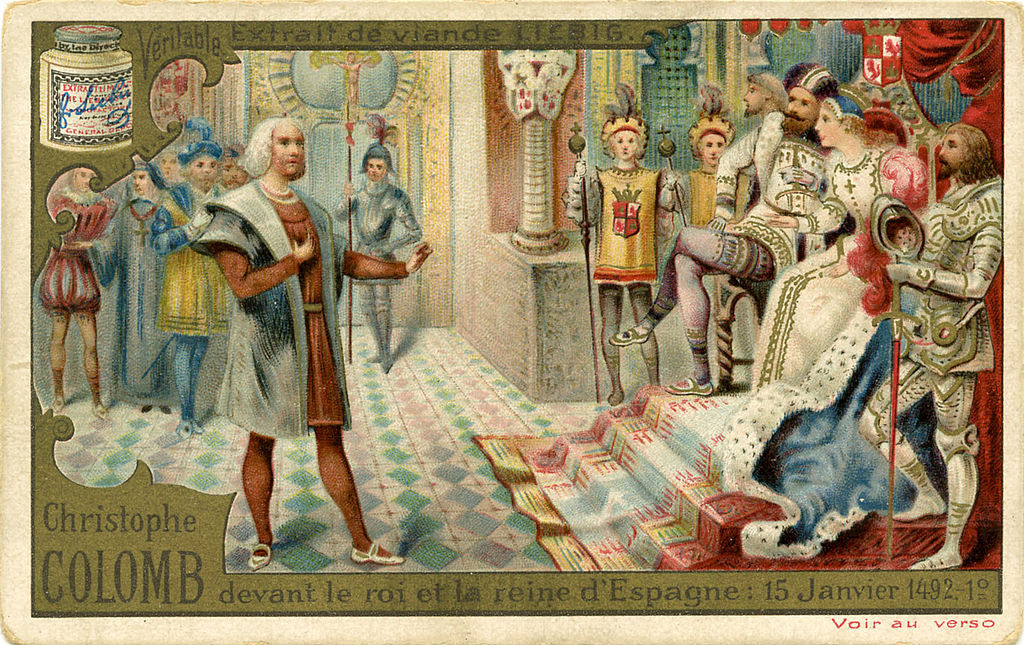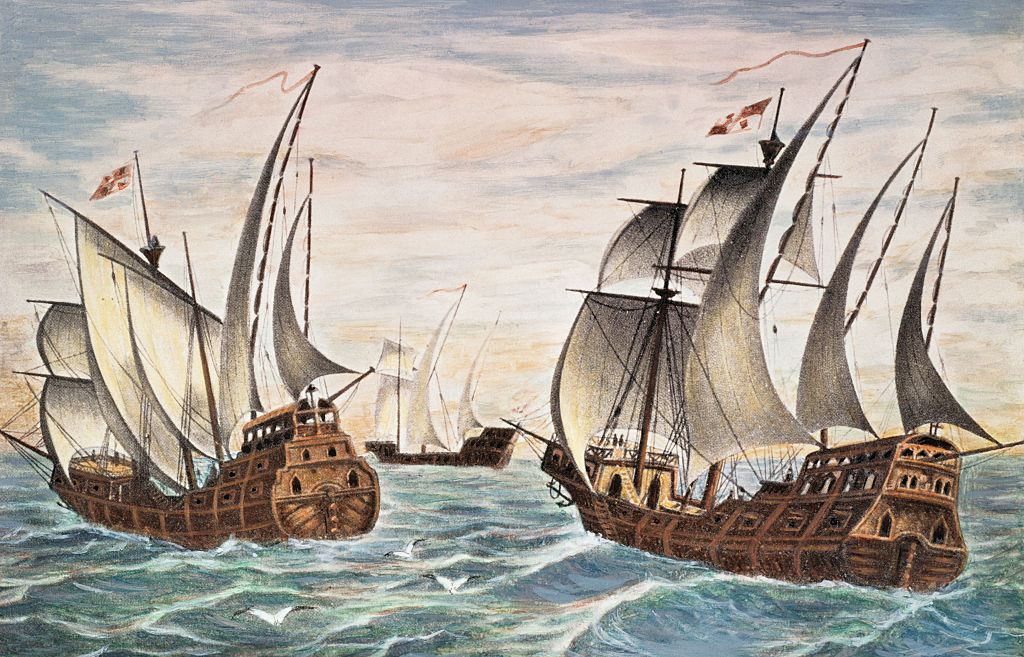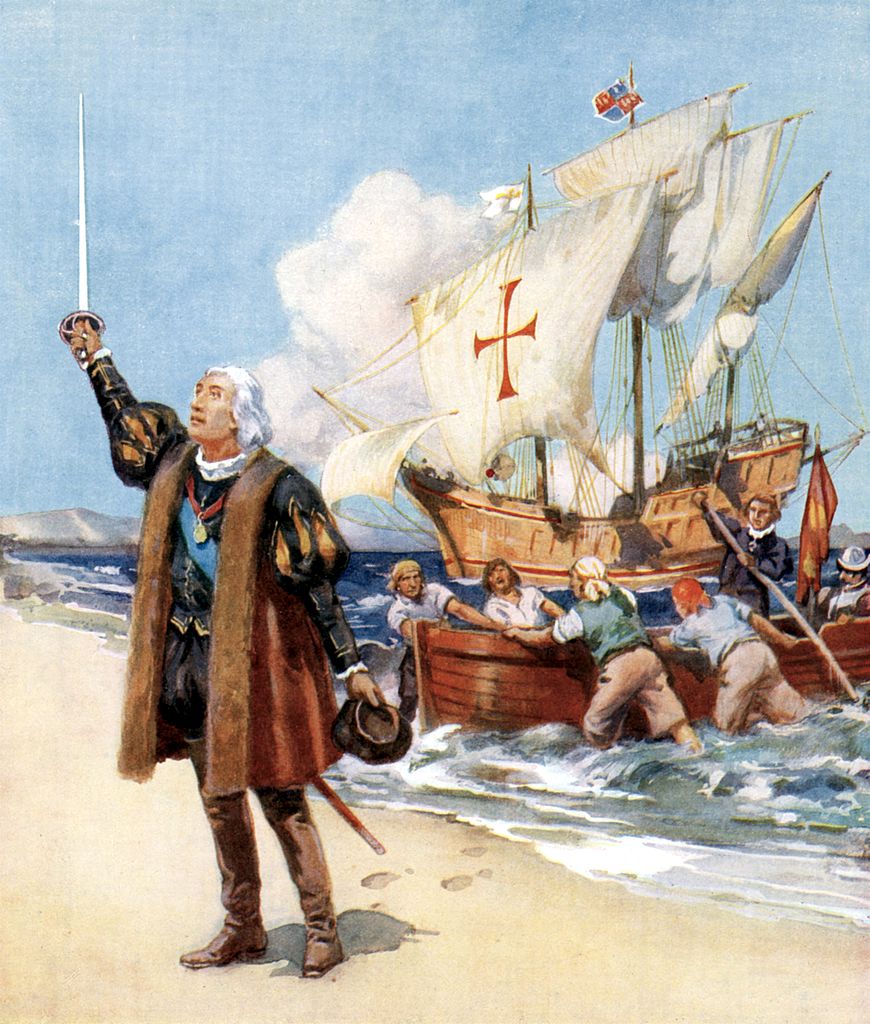-
American Pre-History
-
US History
- Why History Matters – Lesson – VIDEO
- The Importance of History: The Past Is the Key to the Future – Lesson
- Presentism and Its Evil – Lesson
- Historical Statues: Should they Stay or Go – Lesson
- Civil Unrest in the United States: A History – Lesson
- Presidents and the Cost of War – Lesson
- Presidents and the Cost of War – Quiz
-
Arrival of Europeans
-
Westward Expansion
-
Civil War and Reconstruction
- The Roots and the Rise of the Civil War – Lesson
- The Roots and the Rise of the Civil War – Quiz
- Civil War: The War Between the States – Lesson
- Civil War: The War Between the States – Quiz
- Reconstruction: Trying to Rebuild a Broken Nation – Lesson
- Reconstruction: Trying to Rebuild a Broken Nation – Quiz
-
Immigration and America
-
20th Century and Modern America
- Black Lives Matter and the Anarchists of 1919 – Lesson
- Prohibition: The Failed Attempt to Outlaw Drunkenness – Lesson
- Attack on Pearl Harbor: Bringing America into World War II – Lesson
- Survivors Tell Their Stories on 80th Anniversary of Pearl Harbor Attack – Lesson
- Survivors Tell Their Stories on 80th Anniversary of Pearl Harbor Attack – Quiz
- Marion Robert Goff: A Soldier’s Tale on D-Day – Lesson
- Marion Robert Goff: A Soldier’s Tale on D-Day – Quiz
- France Says ‘Merci Les Américains’ on Bastille Day – Lesson
- France Says ‘Merci Les Américains’ on Bastille Day – Quiz
- A Closer Look at Martin Luther King’s ‘I Have a Dream’ Speech – Lesson
- A Closer Look at Martin Luther King’s ‘I Have a Dream’ Speech – Quiz
- 50 Years Since Nixon Went to China: Ping-Pong Diplomacy – Lesson (Part 1)
- 50 Years Since Nixon Went to China: Ping-Pong Diplomacy – Quiz
- 50 Years Since Nixon Went to China: ‘The Week That Changed the World’ – Lesson (Part 2)
- 50 Years Since Nixon Went to China: ‘The Week That Changed the World’ – Quiz
-
The 21st Century: A New Millennium
Christopher Columbus: He Searched for India but Found America – Lesson
Columbus hoped to sail around the world to India, but he didn’t know about the continents in the way.

Christopher Columbus before audience of Ferdinand II of Aragon and Isabella I of Castile, 1492. (Photo by Culture Club/Getty Images)
Christopher Columbus discovered America on October 12, 1492, but it was all by chance – a mistake. The explorer had been looking for an easier route from Europe to Asia when he came across the huge land that no one from Europe even knew about. But who was Columbus and what led him to his life of sailing and exploration?
Christopher Columbus was the son of a wool merchant and was believed to have been born in Genoa, Italy in 1451. He started working on a merchant ship as a young teenager and continued working on the sea until pirates attacked his ship in 1476. Although his boat sank, he was able to reach shore safely by floating on a scrap of wood.
Young Christopher didn’t go back to work on ships for a while, instead he turned his efforts to studying mathematics, cartography (drawing maps), astronomy, and navigation. During this time, it was very hard to get to Asia by land from Europe. The journey was long and dangerous. Portuguese explorers took to the sea, sailing along the West African coast and then around the Cape of Good Hope. This was still a long voyage, so Columbus came up with another idea.

Illustration of the Nina, Pinta and Santa Maria
He wondered about sailing west across the Atlantic instead. Although his idea was good, unfortunately his math was not. He believed the circumference of the Earth was much smaller than it is and that an undiscovered Northwest Passage would be a much easier route. He explained his idea to leaders in Portugal and England, but no one would help. In 1492, Spain’s Ferdinand of Aragon and Isabella of Castile decided to take the risk.
A deal was made and Columbus looked forward to receiving 10% of whatever he found along with a noble title, and he would be named governor of any lands he discovered. With that promise in mind, the explorer set sail on August 3, 1492 with three ships: the Nina, the Pinta, and the Santa Maria.

A depiction of Christopher Columbus claiming possession of the New World, 1492. (Photo by Universal History Archive/Getty Images)
On October 12, the ships reached land – but it wasn’t the East Indies, as Columbus had planned. Instead they landed on one of the Bahamian Islands. He and his crew spent months sailing from island to island trying to find riches. Disappointed by not getting as much treasure as he’d hoped, Columbus set sail for Spain in January 1493, but he left several dozen of his men in a temporary settlement on “Hispaniola” – what is today Haiti and the Dominican Republic.
The settlement was destroyed, but Columbus had returned and tried to make it work. He left his brothers in charge, but the colonists of Hispaniola revolted against Columbus’ brothers. A new governor had to be sent to set things right. He was arrested and taken back to Spain in chains for his mismanagement.
In 1502, most of the charges against Columbus were dropped, but he was not allowed to keep his noble titles. He died in 1506.